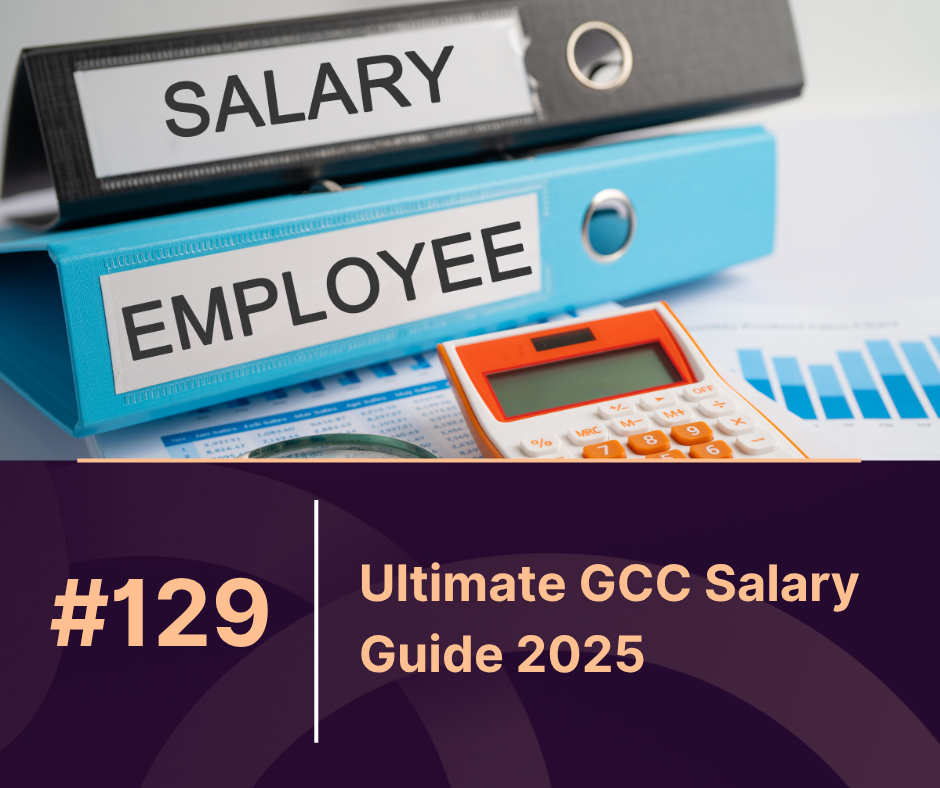Overview
Navigating salaries in the Gulf region can be complex. With changing economic trends, evolving job markets, and a large expat workforce, knowing what you’re worth is more important than ever. Whether you’re a job seeker, employer, or HR professional, this GCC salary guide breaks down salary expectations by industry and role to help you make better decisions in 2025.
This blog provides accurate and up-to-date salary benchmarks across the UAE, Saudi Arabia, Qatar, and other GCC countries, using real data and market analysis.
Why a GCC Salary Guide Matters in 2025
With continued economic diversification under Vision 2030 and a surge in remote and hybrid work models, the GCC job market is transforming. Roles in tech, healthcare, finance, and construction are in high demand — but pay scales differ widely across countries and industries.
The GCC job market in 2025 is evolving rapidly, with salaries shaped by digital transformation, localization initiatives, and rising demand for specialized skills. Employers across the UAE, Saudi Arabia, Qatar, and other Gulf countries are focusing on attracting and retaining top talent in competitive industries such as finance, healthcare, technology, and renewable energy. This salary guide provides a comprehensive look at pay scales by role and sector, helping both professionals and employers benchmark expectations, negotiate effectively, and plan long-term career or workforce strategies.
A reliable GCC salary guide helps:
-
Professionals benchmark their salaries
-
Employers plan competitive compensation packages
-
Job seekers negotiate better offers
-
HR teams retain top talent
Average Salaries in GCC by Industry and Role
Here’s a snapshot of monthly average salaries across key industries in the GCC for 2025 (in USD):
| Industry | Entry-Level | Mid-Level | Senior-Level |
|---|---|---|---|
| Information Technology | $2,500 | $5,000 | $8,500 |
| Finance & Accounting | $2,800 | $5,300 | $9,000 |
| Healthcare | $3,000 | $6,000 | $10,000 |
| Construction & Engineering | $2,600 | $4,800 | $8,200 |
| Marketing & Sales | $2,200 | $4,500 | $7,500 |
| HR & Administration | $2,000 | $3,800 | $6,500 |
| Education | $1,800 | $3,500 | $5,800 |
Note: Salaries vary based on country, company size, expat packages, and tax benefits.
Country-Wise Salary Insights
🇦🇪 UAE
Dubai and Abu Dhabi lead the GCC in competitive compensation, especially in tech and finance roles.
-
IT Project Manager: $7,500/month
-
Senior Accountant: $6,000/month
-
Marketing Manager: $5,000/month
🇸🇦 Saudi Arabia
Saudi Arabia is rapidly catching up due to major government-led infrastructure projects and economic reforms.
-
Civil Engineer: $6,800/month
-
Data Analyst: $5,200/month
-
HR Manager: $6,000/month
🇶🇦 Qatar
Doha continues to attract expats with tax-free salaries and benefits.
-
Registered Nurse: $5,000/month
-
Software Developer: $5,500/month
-
School Principal: $6,200/month
Key Trends Affecting GCC Salaries in 2025
-
Digital transformation: Increasing demand for roles in cybersecurity, AI, and data science.
-
Localisation policies: Higher incentives for local hires, especially in Saudi Arabia.
-
Healthcare expansion: A growing need for medical professionals in both public and private sectors.
-
Remote work: Salaries for remote global roles are influencing local benchmarks.
How to Use This GCC Salary Guide
-
Job Seekers: Research your role and industry to understand your market value before accepting an offer.
-
Recruiters & HR: Use this data to create fair and attractive compensation packages that align with 2025 standards.
-
Expats: Understand how salaries differ between countries and factor in cost of living and benefits.
Conclusion
The GCC salary guide for 2025 offers a clear view of what professionals can expect across industries and roles. With regional economies evolving, staying informed about salary benchmarks helps individuals and businesses remain competitive. Whether you’re hiring, switching careers, or negotiating your next offer knowledge is your strongest asset.
FAQs
What is the average salary in the GCC in 2025?
The average salary in the GCC ranges from $2,500 to $9,000 per month, depending on the industry, experience level, and location.
Which GCC country offers the highest salaries?
Currently, the UAE and Qatar offer some of the highest tax-free salaries, especially in the finance, tech, and healthcare sectors.
Are salaries in the GCC tax-free?
In most GCC countries like the UAE, Qatar, and Saudi Arabia, there is no income tax for individuals, making take-home pay significantly higher.
How often are GCC salary guides updated?
Reliable GCC salary guides are updated annually to reflect market conditions, inflation, and new job market trends.
Is this guide useful for remote workers?
Yes. With more remote roles based in GCC companies, this guide helps benchmark fair compensation even for hybrid or remote jobs.



